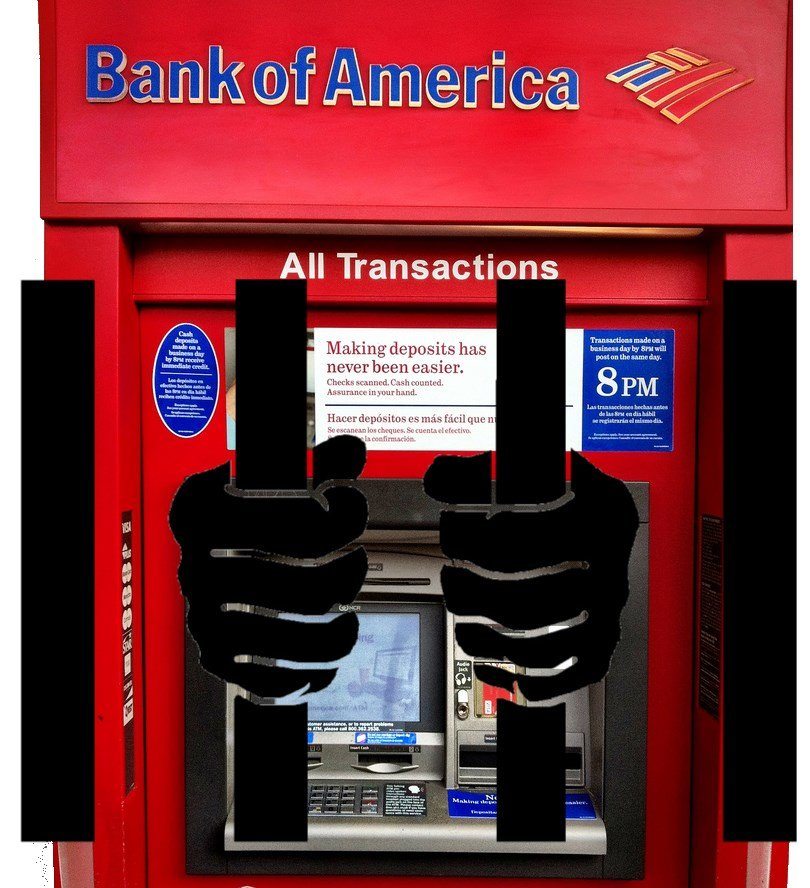Labor & Economy
For-Profit Corporations’ Prison Break-in

Introducing for-profit companies into America’s criminal justice system has been a bad deal for governments across the country.
During the past several years, a movement opposed to profit incentives in our criminal justice system has grown. Private prison corporations such as Corrections Corporation of America and GEO Group have come under increasing scrutiny and pressure for cutting corners, contracts that include “occupancy guarantees” of 80, 90 and even 100 percent, and unsafe prison conditions.
But it’s not just the prisons that are handed over to CCA or GEO Group. Almost every service delivered inside the prison is being outsourced to for-profit corporations. Outsourced inmate health care, food and commissary services, telephone and financial services like money transfers between families and inmates are all adding to the poor conditions in prisons and burdening inmates and their families with extra costs.
For example, earlier this month, the Palm Beach Post broke the story of the deplorable treatment of prisoners by health care contractors in Florida prisons as contractors seek to maximize profits by cutting costs. The result, according to the Post, has been a 10-year high in inmate deaths.
Florida Governor Rick Scott campaigned on privatizing health care in Florida’s prisons, and that is exactly what he has delivered. The Post investigation uncovered skyrocketing inmate deaths, as referrals to outside doctors have dropped by nearly 50 percent, and prescription pain management medications are replaced with over the counter drugs like Tylenol and ibuprofen. One inmate complained of lumps in her arm and was given a warm compress, Tylenol and solitary confinement. Six weeks later, she was dead of cancer that had spread throughout her body.
Another inmate received a recommendation from multiple doctors for surgery to replace an infected hip joint. Instead, his hip rotted in his own body for 19 months until multiple, more costly surgeries were required to replace the joint. That was in February of 2013. The contractor, Wexford Health Sources, then disapproved a new, replacement hip for the inmate. As of last month, that inmate had not received a hip replacement and must sleep in a wheel chair.
Like Florida, Michigan is experiencing a nightmare in prison services outsourcing. Last December, Aramark received a $145 million contract to operate kitchens in Michigan’s prisons. The contract has been plagued by one scandal after another–scandals that involve every sort of misconduct you could imagine. Underserving inmates. Maggots in and around food. Smuggling of contraband by Aramark employees, including cocaine and heroin. Sex with inmates in kitchen coolers, and even an Aramark employee accused of attempting to hire one inmate to murder another.
For many of these infractions, Aramark received a $98,000 fine, or so Michiganders were told. Months after the fine was levied in the spring, the Detroit Free Press reported that the administration of Governor Rick Snyder secretly cancelled the fine and it was never paid. In July, the Snyder administration levied a second, $200,000 fine against Aramark. We are left to trust the company and the administration to ensure this one is paid.
Federal prison facilities are part of this trend as well. Thanks to a century-and-a-half old loophole, federal prisons are able to award no-bid contracts for providing financial services to prisoners without the usual oversight that should accompany the contracting process. Bank of America has an exclusive contract with the U.S. Bureau of Prisons to process money transfers from prisoners’ families. Bank of America has parlayed this service into an array of other contracts, including e-messaging and telephone services. According to the Center for Public Integrity, Bank of America has collected over $75 million for these services since 2000.
Once an inmate leaves a facility, another no-bid contractor takes over. Departing inmates are given refunds for whatever they may have remaining in their account in the form of a high-fee payment card issued by another Wall Street behemoth — JPMorgan.
Again, these contracts are awarded without a competitive bidding process. JPMorgan and Bank of America have never had to compete with other firms who may able to perform these services better or cheaper, let alone compete with public administration.
In each of these cases, the profits of corporations have been prioritized ahead of prison conditions, offender rehabilitation and reentry. Similarly, problems like these have a demonstrated effect on worker safety, putting correctional officers at risk when inmate morale is impacted by subhuman, deplorable conditions. These problems are enough to make any government think twice about outsourcing prison services.
(This feature is cross-posted at Huffington Post.)
ATM Photo: Steve Rhodes

-

 The SlickJanuary 23, 2026
The SlickJanuary 23, 2026Yes, the Energy Transition Is Coming. But ‘Probably Not’ in Our Lifetime.
-

 The SlickJanuary 27, 2026
The SlickJanuary 27, 2026The One Big Beautiful Prediction: The Energy Transition Is Still Alive
-

 Column - State of InequalityJanuary 29, 2026
Column - State of InequalityJanuary 29, 2026Are California’s Billionaires Crying Wolf?
-

 Latest NewsFebruary 3, 2026
Latest NewsFebruary 3, 2026Amid the Violent Minnesota Raids, ICE Arrests Over 100 Refugees, Ships Many to Texas
-

 Dirty MoneyJanuary 30, 2026
Dirty MoneyJanuary 30, 2026Amid Climate Crisis, Insurers’ Increased Use of AI Raises Concern For Policyholders
-

 Featured VideoFebruary 4, 2026
Featured VideoFebruary 4, 2026Protesters Turn to Economic Disruption to Fight ICE
-

 The SlickFebruary 2, 2026
The SlickFebruary 2, 2026Colorado May Ask Big Oil to Leave Millions of Dollars in the Ground
-

 Column - State of InequalityFebruary 5, 2026
Column - State of InequalityFebruary 5, 2026Lawsuits Push Back on Trump’s Attack on Child Care

